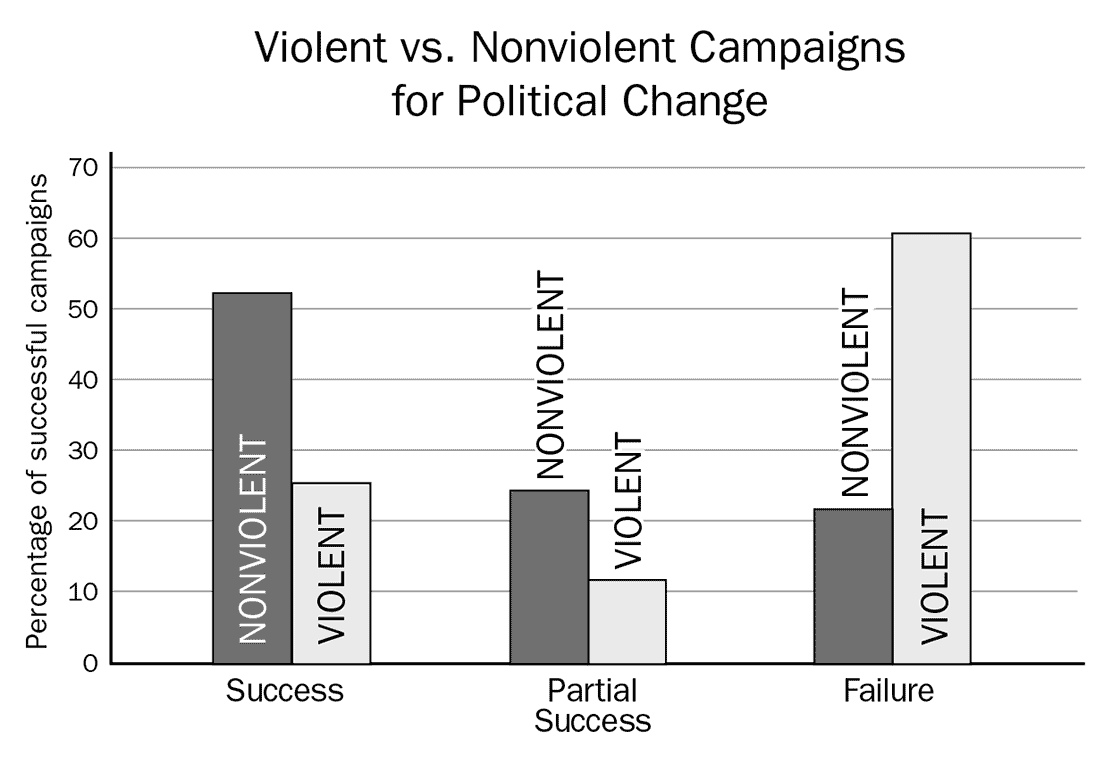In The Moral Arc I document a number of areas of moral progress, including the abolition of slavery and torture, the invention of rights, the expansion of civil liberties, the granting of the vote to blacks and women, gay rights and same-sex marriage, animal rights, the spread of liberal democracies and market economies, the decline of homicides, genocides, and even the percentage of populations who die in wars and revolutions. Whenever I recount this litany of good news for people, however, they inevitably ask “what about terrorism?” After all, a news cycle doesn’t go by without a report of a suicide bombing or terrorist attack of some sort. Isn’t terrorism an example of moral regress?
Actually, the long-term trends even for terrorism are in the right direction. Compared to other forms of violence such as homicides and genocides, which themselves are on the decline, deaths and injuries from terrorism are statistical noise. More important, in terms of making political change, violent terrorism is a failed strategy that is on its way out. Why, then, do so many of us fear it?

Terrorism is a form of asymmetrical warfare by non-state actors against innocent noncombatant civilians. As its name suggests, it attempts to gain power by evoking terror. This tactic raises our alarmist emotions, which in turn confounds our reasoning, making clear thinking about terrorism well nigh impossible. I suggest that there are at least seven myths that have arisen that need to be debunked to properly understand the causes of terrorism and to continue to reduce its frequency and effectiveness.
Myth # 1: Terrorists are pure evil.
This first myth took root in September, 2001 when President George W. Bush announced “We will rid the world of the evildoers” because they hate us for “our freedom of religion, our freedom of speech, our freedom to vote and assemble and disagree with each other.” This sentiment embodies what the social psychologist Roy Baumeister calls “the myth of pure evil,” which holds that perpetrators of violence act only to commit senseless injury and pointless death for no rational reason. The “terrorists-as-evil-doers” myth is busted through the scientific study of violence, of which at least four types motivate terrorists: instrumental, dominance/honor, revenge, and ideology.
No comments:
Post a Comment